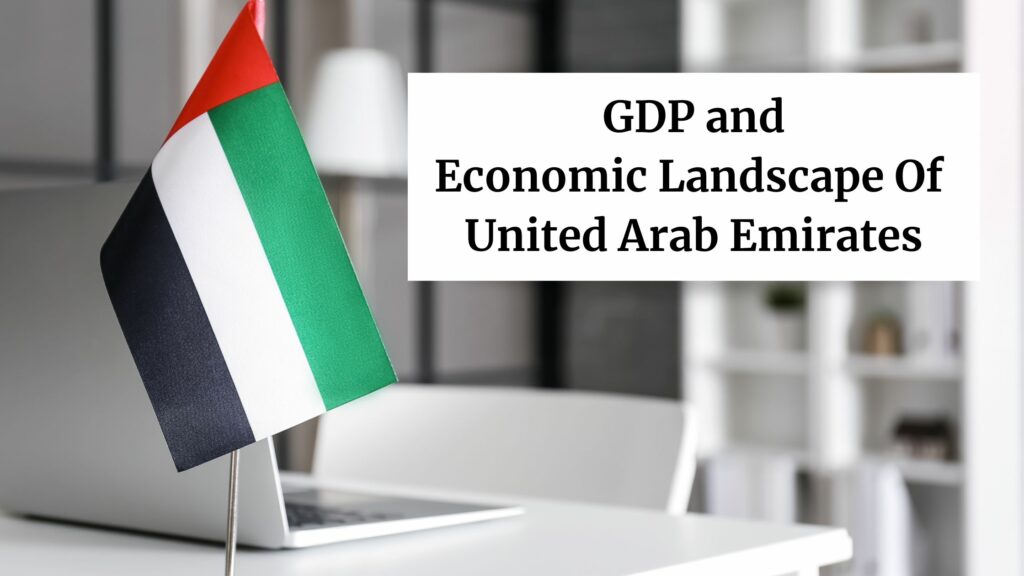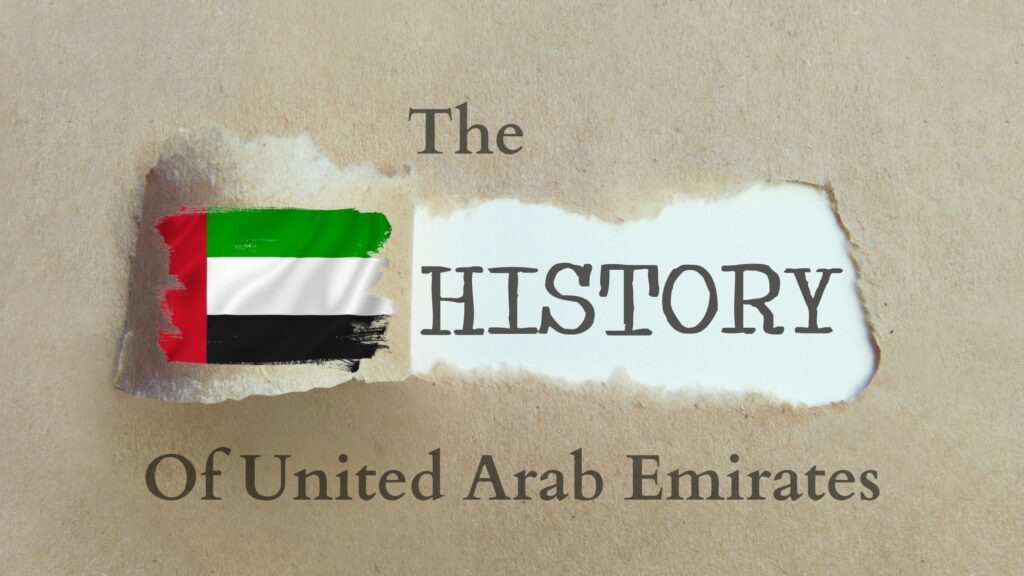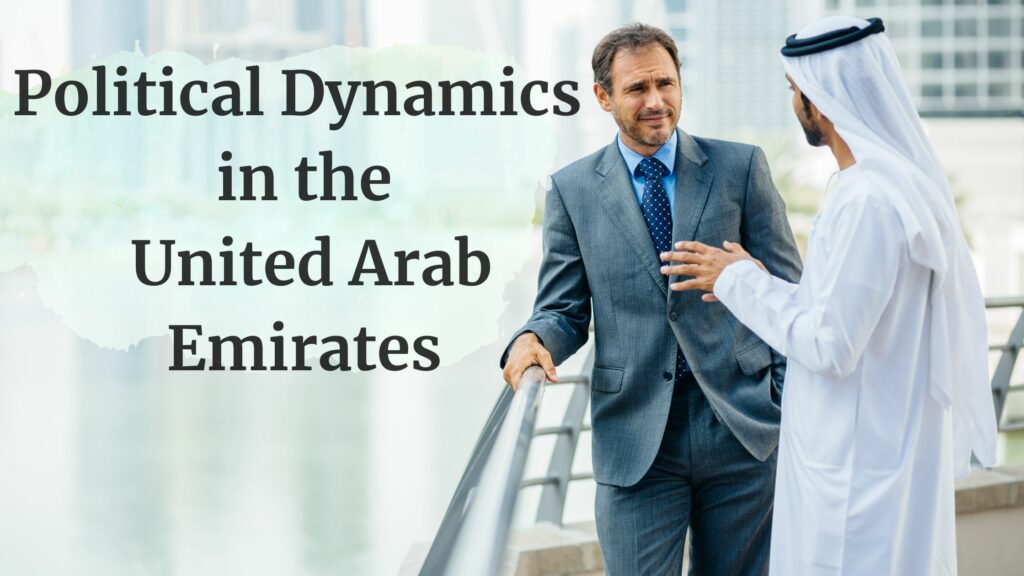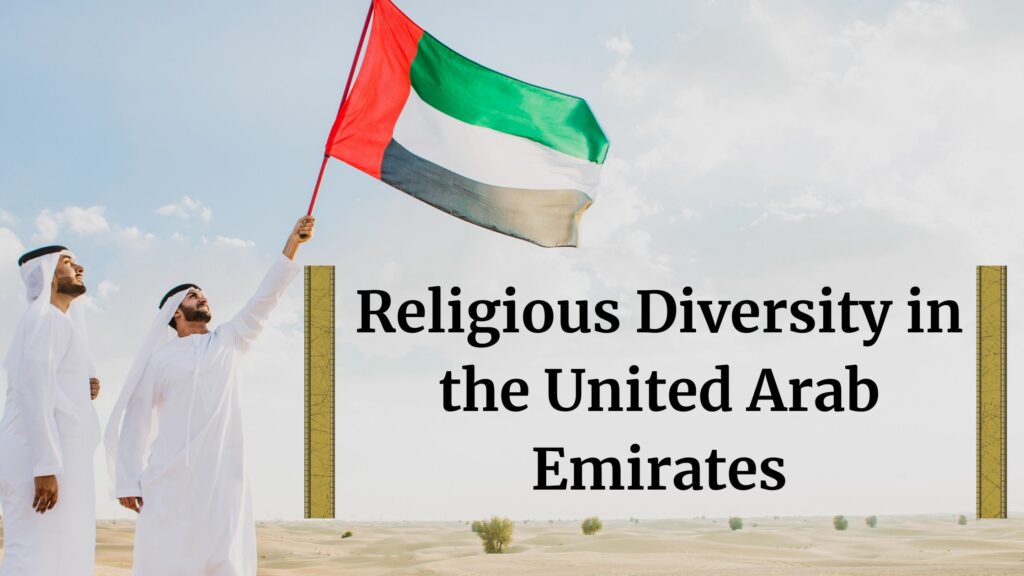The United Arab Emirates (UAE) has emerged as a global economic powerhouse, boasting a robust GDP and a dynamic economic landscape that defies the norms of the region. This federation of seven emirates has transformed itself from a modest oil-based economy to a thriving and diversified economic hub, seamlessly blending tradition with innovation. In this article, we delve into the driving forces behind the UAE’s thriving GDP and explore the multifaceted economic landscape that has propelled its remarkable growth.
Once predominantly reliant on hydrocarbons, the UAE has strategically diversified its economic drivers, embracing sectors like tourism, trade, finance, and technology. Dubai, the nation’s crown jewel, stands as a testament to this transition, captivating visitors with its architectural marvels, luxurious attractions, and business-friendly environment. However, the UAE’s economic prowess extends far beyond Dubai, with Abu Dhabi, Sharjah, and the other emirates contributing their unique strengths to the nation’s growth trajectory. By fostering an ecosystem that nurtures entrepreneurship, attracts foreign investment, and promotes sustainable development, the UAE has solidified its position as a cornerstone of the Middle Eastern economy.
What are the key facts about the UAE economy?
The United Arab Emirates has firmly established itself as an economic force to be reckoned with on the global stage. Let’s explore the key facts that underscore the nation’s remarkable economic prowess:
- Impressive GDP: The UAE boasts an impressive Gross Domestic Product (GDP) of approximately $421 billion as of 2022, solidifying its position as the second-largest economy in the Arab world, following Saudi Arabia.
- High Wealth Levels: With a per capita GDP exceeding $67,000, the UAE ranks among the wealthiest nations globally, reflecting the high living standards enjoyed by its citizens.
- Successful Diversification: Once heavily reliant on oil exports, the UAE has successfully diversified its economy, with non-oil sectors now contributing over 70% to its GDP.
- Tourism Powerhouse: The UAE’s tourism industry is a significant economic driver, attracting over 19 million international visitors in 2022 and contributing around 12% to the nation’s GDP.
- Global Trade Hub: Strategically located at the crossroads of major trade routes, the UAE serves as a vital hub for global trade, facilitating the movement of goods worldwide through its ports and airports.
- Financial Center: Dubai and Abu Dhabi have emerged as major financial centers in the region, hosting numerous multinational corporations and serving as hubs for investment and banking activities.
- Entrepreneurial Ecosystem: The UAE fosters a thriving entrepreneurial ecosystem by offering favorable business regulations, tax incentives, and world-class infrastructure to attract and support startups and enterprises.
- Sustainable Initiatives: Recognizing the importance of environmental sustainability, the UAE has launched various green initiatives, including investing in renewable energy sources and promoting sustainable practices across industries.
- Foreign Investment Magnet: The UAE’s business-friendly policies and strategic location have made it an attractive destination for foreign direct investment, with inflows reaching over $20 billion in 2022.
- Innovation Focus: With a focus on knowledge-based industries and cutting-edge technologies, the UAE is positioning itself as an innovation hub, investing in research and development, and nurturing talent in fields such as artificial intelligence and blockchain.
What are the major sectors driving the UAE’s economic growth?
The United Arab Emirates’ remarkable economic growth is fueled by several key sectors that contribute significantly to its economic prosperity. Let’s explore these driving forces:
- Oil and Gas: While the UAE has diversified its economy, the oil and gas industry remains a vital sector, accounting for a substantial portion of its GDP and export revenue.
- Trade and Logistics: Strategically located at the crossroads of major trade routes, the UAE has positioned itself as a global trade and logistics hub, facilitating the movement of goods worldwide through its advanced ports and airports.
- Tourism: The UAE’s tourism industry has experienced tremendous growth, attracting millions of visitors annually with its world-class attractions, luxury hospitality, and diverse cultural offerings.
- Real Estate and Construction: The UAE’s booming real estate and construction sectors have played a crucial role in its economic expansion, driven by high demand for residential, commercial, and infrastructure projects.
- Finance and Banking: Dubai and Abu Dhabi have emerged as major financial centers in the region, hosting numerous multinational corporations and serving as hubs for investment, banking, and financial services.
- Manufacturing: The UAE has made significant strides in developing its manufacturing sector, producing a range of products, including petrochemicals, aluminum, and other industrial goods.
- Renewable Energy: Recognizing the importance of sustainable development, the UAE has invested heavily in renewable energy sources, such as solar and nuclear power, to diversify its energy mix and reduce its carbon footprint.
- Technology and Innovation: The UAE is positioning itself as a hub for technology and innovation, fostering the growth of industries like artificial intelligence, blockchain, and cybersecurity.
- Transportation and Logistics: With its advanced infrastructure and strategic location, the UAE has developed a robust transportation and logistics sector, facilitating the efficient movement of goods and people.
- Retail and E-commerce: The UAE’s thriving retail and e-commerce sectors cater to the nation’s affluent consumer base and serve as a hub for regional and global brands.
These diverse sectors have collectively contributed to the UAE’s economic prosperity, reflecting the nation’s commitment to economic diversification, sustainable development, and positioning itself as a global hub for trade, finance, and innovation.
What is the GDP and GDP per capita of the UAE?
Gross Domestic Product (GDP) and GDP per capita are key indicators of a nation’s economic performance and living standards. Let’s delve into the latest statistics for the United Arab Emirates:
UAE’s GDP
- According to the latest data from the World Bank, the UAE’s GDP in 2022 stood at approximately $460 billion (AED 1.69 trillion).
- This positions the UAE as the second-largest economy in the Arab world, after Saudi Arabia, and the 33rd largest economy globally.
- The UAE’s GDP has experienced steady growth over the past decade, recovering from the impact of the global financial crisis and benefiting from diversification efforts and economic reforms.
UAE’s GDP per Capita
- The UAE’s GDP per capita, which measures the nation’s economic output per person, is one of the highest in the world.
- In 2022, the UAE’s GDP per capita reached approximately $45,000 (AED 165,000), according to World Bank estimates.
- This figure places the UAE among the top 20 countries globally in terms of GDP per capita, reflecting the high living standards and purchasing power enjoyed by its citizens and residents.
GDP Growth
- The UAE’s GDP growth rate has remained resilient, with the International Monetary Fund (IMF) estimating a growth rate of around 3.8% in 2022 and projecting a similar growth rate of 3.5% for 2023.
- This growth is driven by factors such as increased oil production, ongoing economic diversification efforts, and a rebound in sectors like tourism and trade.
What are the major contributors to the UAE’s GDP?
| Sector | Contribution to GDP |
|---|---|
| Oil and Gas | Approximately 30% |
| Trade and Tourism | Around 25% |
| Real Estate and Construction | Around 15% |
| Manufacturing | Around 10% |
| Financial Services | Around 8% |
| Transportation and Logistics | Around 5% |
| Other Services | Remaining Percentage |
The figures mentioned may vary depending on the time this article is being read, as the UAE economy is dynamic, and the contributions of various sectors to the GDP can fluctuate over time.
How does the UAE rank in terms of wealth and per capita income?
The United Arab Emirates (UAE) consistently ranks among the wealthiest nations globally in terms of per capita income. According to the World Bank’s latest estimates, the UAE’s Gross National Income (GNI) per capita is around $40,000, placing it firmly within the high-income economy category. This substantial per capita income is primarily driven by the country’s substantial hydrocarbon exports and diversified economy, coupled with a relatively small population.
Furthermore, the UAE scores highly on various wealth indices, reflecting its affluent society. For instance, it ranks among the top 30 countries in the World Bank’s Wealth Accounts, which measures a nation’s comprehensive wealth, including natural capital, produced capital, and human capital. The UAE’s high ranking underscores its successful economic diversification efforts, robust infrastructure, and investment in human development, making it an attractive destination for businesses, investors, and expatriates alike.
How competitive is the UAE economy globally?
The UAE economy is highly competitive on the global stage. According to the World Economic Forum’s Global Competitiveness Report, the UAE consistently ranks among the top 20 most competitive economies worldwide. This impressive standing is a testament to the country’s business-friendly environment, world-class infrastructure, and strategic location as a global trade and logistics hub.
Furthermore, the UAE scores exceptionally well in various competitiveness pillars, such as macroeconomic stability, market size, labor market efficiency, and technological readiness. Its pro-business policies, including low tax rates, efficient regulatory frameworks, and robust intellectual property protection, have attracted significant foreign direct investment (FDI) and fostered a thriving entrepreneurial ecosystem. These factors, combined with its diverse and skilled workforce, position the UAE as a highly competitive economic powerhouse in the global marketplace.
What are the challenges for the UAE economy?
- Diversification Away from Oil Dependence
- Despite efforts, the economy remains heavily reliant on oil and gas exports
- Fluctuations in global oil prices can significantly impact economic growth
- Demographic Imbalance
- Large expatriate population outnumbers local Emirati population
- Potential long-term socio-economic implications and workforce challenges
- Sustainable Development and Environmental Concerns
- Addressing the environmental impact of rapid urbanization and industrialization
- Promoting sustainable practices and renewable energy sources
- Fostering Innovation and Entrepreneurship
- Nurturing a culture of innovation and entrepreneurship beyond traditional sectors
- Attracting and retaining highly skilled talent in a competitive global market
- Economic Diversification and Job Creation
- Continued efforts to diversify the economy into non-oil sectors
- Generating employment opportunities for the growing national workforce
- Geopolitical Risks and Regional Instability
- Potential impact of regional conflicts and tensions on trade, tourism, and investment
- Maintaining a stable and secure environment for economic activities
- Adapting to Technological Disruptions
- Keeping pace with rapid technological advancements and digitalization
- Ensuring workforce readiness and embracing innovations across industries
What are the natural resources and exports of the UAE?
Natural Resources
- Oil Reserves
- The UAE has the sixth-largest proven oil reserves globally
- Major oil fields include Zakum, Umm Shaif, and Murban
- Natural Gas Reserves
- Substantial natural gas reserves, predominantly from offshore fields
- Key gas fields include Khuff, Bab, and Shah
- Mineral Resources
- Limited mineral resources, including small deposits of chromite, iron ore, and precious metals
Major Exports
- Crude Oil and Refined Petroleum Products
- Oil and gas products account for a significant portion of the UAE’s total exports
- Major export partners include Japan, India, China, and South Korea
- Aluminum and Aluminum Products
- The UAE is a leading producer and exporter of aluminum globally
- Exports include aluminum alloys, bars, rods, and other semi-finished products
- Precious Metals and Gemstones
- Dubai is a major global hub for gold and diamond trade
- Exports include gold, diamonds, and other precious stones
- Machinery and Equipment
- Exports of machinery, electrical equipment, and appliances
- Products include telecommunications equipment, computers, and industrial machinery
- Chemicals and Plastics
- Exports of petrochemicals, fertilizers, and plastic products
- Major export partners include China, India, and other Asian countries
- Tourism and Services
- While not a physical export, tourism and services contribute significantly to the UAE’s economy
- The UAE attracts millions of visitors annually and is a regional hub for finance, logistics, and aviation
How significant is the oil sector in the UAE economy?
The oil sector plays a pivotal role in the United Arab Emirates’ economy, contributing significantly to the country’s economic growth and development. Despite efforts towards diversification, the hydrocarbon industry remains the backbone of the UAE’s economy, accounting for a substantial portion of its GDP and government revenues.
While the exact figures may vary annually, the oil and gas sector typically contributes around 30% of the UAE’s total GDP. This contribution extends beyond direct oil and gas production, as the sector has spawned a network of supporting industries, including petrochemicals, manufacturing, and ancillary services. Additionally, oil export revenues are a crucial source of foreign exchange earnings, enabling the UAE to finance its ambitious development projects and maintain a strong fiscal position.
Furthermore, the oil sector has played a significant role in shaping the UAE’s infrastructure and technological advancements. The wealth generated from oil exports has facilitated investments in world-class infrastructure, including airports, seaports, roads, and urban development projects. The UAE has also leveraged its oil revenues to diversify its economy, investing in sectors such as tourism, real estate, finance, and renewable energy. However, the country’s reliance on hydrocarbons remains substantial, highlighting the need for continued efforts towards economic diversification and sustainable development.
How has the UAE diversified its economy beyond oil?
Recognizing the finite nature of its hydrocarbon resources, the United Arab Emirates has been actively pursuing economic diversification strategies to reduce its reliance on the oil sector. Over the past decades, the UAE has made significant strides in developing non-oil sectors, transforming itself into a regional hub for various industries.
One of the most notable diversification efforts has been in the realm of tourism and hospitality. The UAE, particularly Dubai and Abu Dhabi, has established itself as a global destination for leisure, business, and medical tourism. Iconic projects like the Burj Khalifa, Palm Jumeirah, and world-class attractions have put the UAE on the global tourism map. Additionally, the country has leveraged its strategic location and world-class infrastructure to become a major logistics and transportation hub, serving as a gateway for trade between East and West.
The UAE has also focused on developing its knowledge-based industries, such as finance, information technology, and renewable energy. The Dubai International Financial Centre (DIFC) and Abu Dhabi Global Market (ADGM) have emerged as leading financial hubs, attracting multinational corporations and fostering a thriving fintech ecosystem. Furthermore, the UAE has invested heavily in developing its manufacturing capabilities, particularly in sectors like aerospace, defense, and advanced materials.
While the oil sector remains a significant contributor to the UAE’s economy, these diversification efforts have helped reduce the country’s reliance on hydrocarbons and positioned it as a leading business and economic hub in the region and beyond.
What is the role of tourism in the UAE’s economy?
Tourism has emerged as a vital pillar of the United Arab Emirates’ economy, playing a crucial role in the country’s economic diversification efforts and contributing significantly to its overall growth and development.
Over the past few decades, the UAE has transformed itself into a global tourism powerhouse, attracting millions of visitors annually with its world-class infrastructure, iconic attractions, and vibrant cultural offerings. The tourism sector directly contributes around 12% to the UAE’s GDP, with this figure expected to rise further as the country continues to invest in tourism-related projects and initiatives.
Dubai, in particular, has become a renowned tourism destination, known for its ultra-modern architecture, luxurious shopping experiences, and diverse entertainment offerings. The city’s iconic landmarks, such as the Burj Khalifa, Palm Jumeirah, and Dubai Mall, have become global attractions, drawing visitors from around the world. Additionally, the UAE has leveraged its strategic location and excellent connectivity to position itself as a hub for business and leisure travel, hosting numerous international events and conferences.
The UAE’s tourism industry has also played a crucial role in creating employment opportunities, both directly and indirectly, across various sectors such as hospitality, retail, transportation, and leisure activities. The government’s continued investment in tourism infrastructure, events, and marketing campaigns further underscores the sector’s importance in the UAE’s economic diversification strategy.
How is the UAE promoting a green and sustainable economy?
In recent years, the United Arab Emirates has made significant strides towards promoting a greener and more sustainable economy. Recognizing the challenges posed by climate change and the need for long-term environmental stewardship, the UAE has implemented various initiatives and strategies aimed at reducing its carbon footprint and embracing sustainable practices.
One of the key focuses of the UAE’s sustainable development agenda is the transition towards renewable energy sources. The country has invested heavily in solar and nuclear power projects, aiming to reduce its reliance on fossil fuels and meet its ambitious clean energy targets. Additionally, the UAE has implemented energy efficiency measures across various sectors, including construction, transportation, and industry, promoting the adoption of green building standards and encouraging the use of electric vehicles. The UAE’s hosting of major events such as Expo 2020 Dubai also showcased its commitment to sustainable practices and innovative solutions for a greener future.
While the UAE continues to diversify its economy and promote sustainable growth, its efforts towards a green and environmentally conscious economy demonstrate its recognition of the importance of balancing economic development with environmental responsibility. By embracing renewable energy, energy efficiency, and sustainable practices, the UAE is positioning itself as a regional leader in the transition towards a more sustainable future.



